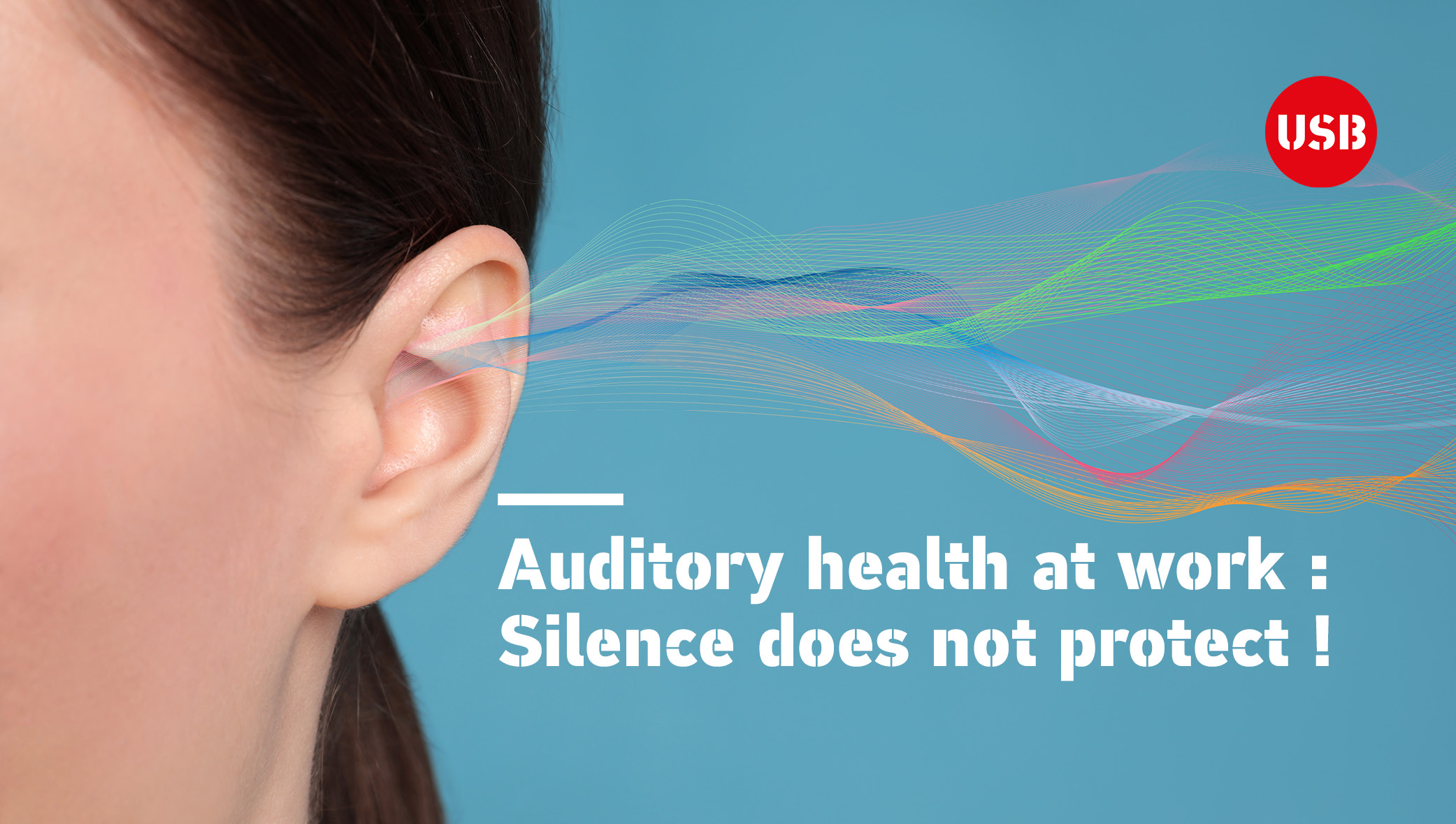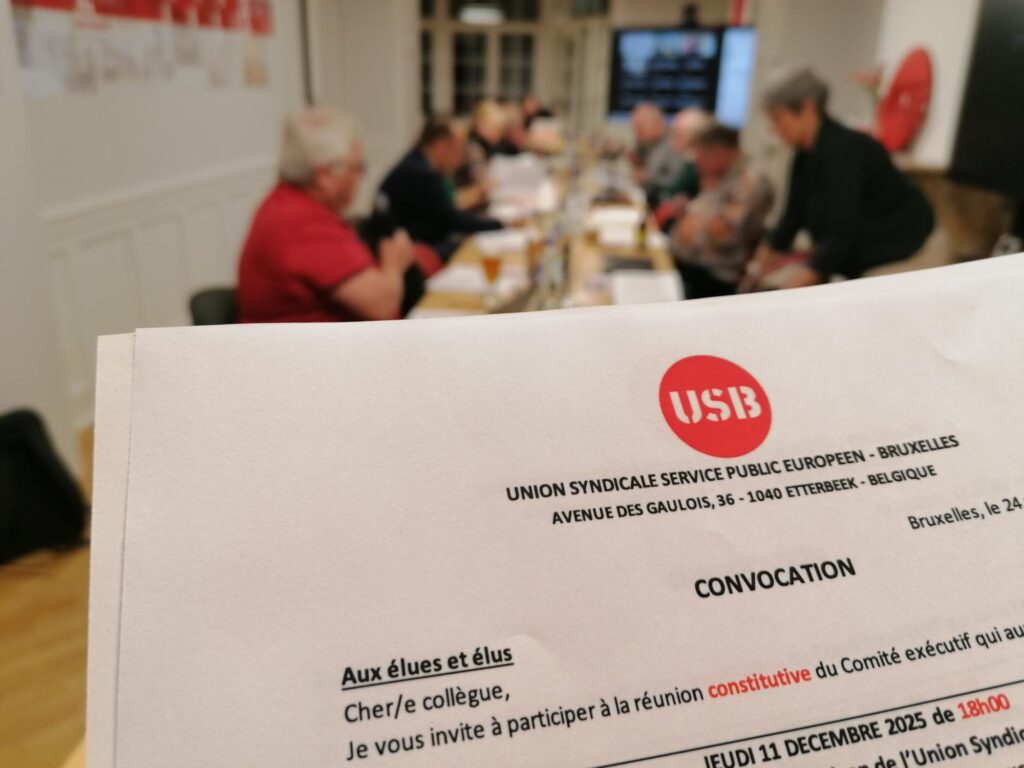Recognition at long last
A significant step has just been taken in recognising the auditory risks associated with working in a digital environment. Some pathologies, unfortunately developed by our fellow interpreters, and which had initially been either ignored or downplayed, have finally been recognised as occupational diseases.
This recognition is a significant step by the Institution and the result of patient and rigorous collective work initiated already several years ago by Union Syndicale.
We were already alerting in October 2022 with ‘Hearing health problem for our interpreters’, and then in June 2023 with ‘Working conditions for interpreters: Union Syndicale asked the administration to open negotiations immediately’ and in October 2023 with ‘Hearing of Interpreters: Removal from Platforms?’.
A collective work in progress
Today, we welcome the launch, at the request of the Committee for Prevention and Protection at Work (CPPT), of the risk analysis on the digital audio chain.
It is a collaborative process involving the main stakeholders: SCIC (the Directorate-General for Interpretation), the CPPT (Committee for Prevention and Protection at Work), the SIPP (Internal Service for Prevention and Protection at Work), the department for occupational medicine and the Delegation of interpreters as particularly concerned and involved stakeholder.
The administration commissioned an external service provider, Modyva, to carry out a study concerning the ergonomics and acoustics at work for SCIC interpreters. Although this comes late and is not prioritising the issue of compressed sound as we would have preferred, this approach offers nevertheless concrete hope in terms of prevention.
We welcome this step forward but remain vigilant to the new challenges for the auditory health of interpreters, who have been working in a digital environment transformed since the pandemic.
This issue is also the subject of research at the highest scientific level: the Institut Pasteur is currently conducting a study on the effects of compressed sound on the hearing system of regular users of conference platforms.
Interpreters wishing to participate can contact the Institut Pasteur directly: COMPRESSED – Research – Institut Pasteur
A mobilisation that continues
Union Syndicale Bruxelles remains fully committed to the effective prevention of hearing risks among our interpreter colleagues. In this regard, we would like to pay a warm tribute to Marie-Odile Franckaert, a lawyer, a member of Union Syndicale and a staff representative whose commitment, rigour and humanity have marked this fight. Her memory and action will continue to inspire our engagement.
An issue that concerns us all
This issue concerns us all, not just our interpreter colleagues. In our frequent hybrid meetings and often prolonged videoconferences, or our daily use of headphones, we are all being exposed to compressed, altered and potentially toxic sound.
The symptoms regularly mentioned – tinnitus, hearing fatigue, hidden deafness, concentration disorders, migraines, to name the most reported symptoms – must be taken seriously! For this, we also recall our leaflet “Take great care of your ears!”
And for those who have been suffering in silence since the introduction of platforms: There is now hope.





